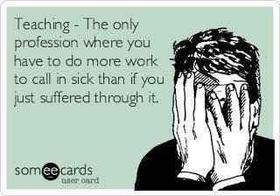A recent survey shows that as many as 11% of children aged 4 to 17 years old have attention deficit hyperactivity disorder or ADHD. This is a condition defined by an ongoing pattern of inattention, hyperactivity, and impulsivity that can interfere with the child’s development and daily function. Some of the most common signs of ADHD like hyperactivity and impulsivity are easy to identify, but there is another category of symptoms that is often less clear – inattention.
Inattention is more than just having trouble staying on task, however, it has lately been defined more broadly as a pattern of difficulties known as executive function disorder (EFD). Keep reading to learn more about executive functioning issues and how to manage them.
This video explains how to bolster executive functioning in middle and high school-age students.
What is Executive Functioning Disorder?
If you think of the human brain as a big company, the executive function of the brain is the CEO. Around the time your child hits puberty, the frontal part in the cortex of his brain matures enough to allow him to perform higher-level tasks – things that the chief executive officer of a company might do. This includes actions like:
- Analyzing a particular task
- Planning the steps to complete the task
- Organizing those steps as needed
- Developing timeline to complete the task
- Adjusting or changing the steps as needed to complete the task
- Completing the task in a timely manner
Executive functioning disorder, or EFD, is a disorder that makes it difficult for a child to organize and control their own behaviors in a way that enables them to complete long-term goals successfully. In many ways, EFD is closely linked to ADHD but EFD is a broader condition that may also affect the child’s learning, attention, organizational, social, and time-management skills. In fact, there are seven specific types of self-regulation that are linked to executive functioning:
- Self-awareness
- Self-restraint
- Non-verbal working memory
- Verbal working memory
- Emotional awareness
- Self-motivation
- Planning/problem solving
Each of these executive functions interacts with the others and they don’t all develop at once – they develop in a sequence as the child matures. One skill builds upon another and, together, they impact how your child is able to regulate his behavior to achieve a positive outcome in the future.
This video offers five ways to build executive function in teenagers.
Learn to Spot the Signs
If your child has already been diagnosed with ADHD, you shouldn’t be surprised if he also develops some problems with executive functioning. Just because your child has trouble planning, organizing, or enacting plans, however, doesn’t mean that he isn’t smart or that he can’t learn – it just means that he may have to work a little harder to develop these cognitive skills. If you are concerned about your child, it may help for you to speak to a specialist or to develop a plan with your child’s teacher. Here are some of the signs to look for that your child might have executive functioning issues:
- He has trouble making effective arguments. Example: He wants you to bend on a certain rule but can’t give you a good reason why. He gets a poor grade on an assignment for not using enough detail or for repeating things.
- He waits to do things until the last minute. Example: He tends to turn assignments in late or doesn’t complete the entire assignment.
- He seems to be out of sync with other kids his age. Example: He has trouble working with other kids on group assignments. He overstays his welcome when he stays at a friend’s house but doesn’t realize it.
- He runs out of time to do things. Example: He has trouble finishing timed tests. He says he will do something but always seems to be in the middle of something when the time comes.
- He has trouble keeping track of details and remembering things. Example: He frequently misplaces things, even the things he uses every day.
If you suspect that your child may have executive functioning issues, it may be a good idea to have him undergo a neuropsychological evaluation. This evaluation consists of a number of tests, interviews, questionnaires, and observations that can help the clinician get a picture of what your child’s individual strengths and weaknesses are so you know how to help him.
Tips for Managing Your Child
Part of helping your child to manage his executive functioning issues involves understanding what those issues are and where they come from. Unfortunately, scientists still haven’t completely determined why some children develop these problems and others do not. There does seem to be a genetic component and if your child has ADHD, dyslexia, or other learning disabilities his risk for developing executive functioning issues may be higher.
If your child has executive functioning issues, you’ll need to work with him outside of school to ensure that he is able to perform well in school. The more you work with your child at home, the more you will come to understand his issues as well which will help you to explain them to his teacher. To help your child at home, here are some things you can do:
- Divide tasks into a list of steps. Children with executive functioning issues often have trouble getting started on new tasks, so breaking it down into a list of steps might make things easier. These children are also easily distracted, so having a list will help your child get back on track after being distracted.
- Set a time limit for activities. If your child has trouble finishing tasks in the allotted time, you can practice at home by setting a time limit for certain activities. Pair this with the previous tip by including a time budget on your checklist.
- Use a planner to keep track of things. For younger children, a large paper planner works well for organizing tasks but, for older children, you can try a smartphone app or time-management software on the computer.
- Explain things clearly. If your child has trouble taking criticism or he isn’t often able to see the merit of doing something a certain way, it may help to be clear in your explanation of things. Spell out for your child why the task is important and how it will benefit him in the long run. If your child knows why he is doing something, it may help him to do it.
- Let your child explain things himself. When your child has executive functioning issues, he may do things differently and you might not always understand why. Instead of just telling your child how he should do something, take a moment to let him explain himself and his reasoning. You may be surprised to find that your child’s own way of doing things is actually the best way.
Executive functioning issues can make it a challenge for your child to learn and progress at the same rate as other children but it does not, by any means, mean that he is stupid. If your child has learning challenges, the best thing you can do is learn as much as you can about whatever issues he is having and then take steps to help him yourself and to make sure that his teacher understands his problems and helps him as well. As your child learns and grows, be patient with him – it may be frustrating for both of you at times but with persistence, you can make a change.
Questions? Contact us on Facebook. @publicschoolreview














